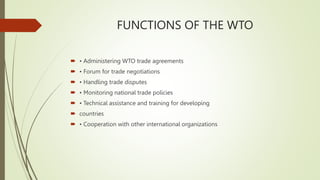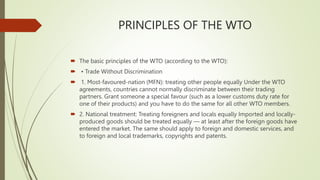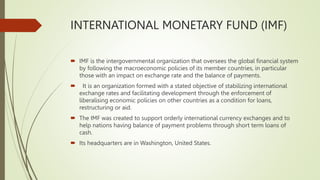The document discusses several major international trade institutions: the World Trade Organization (WTO), International Monetary Fund (IMF), and Organization for Economic Cooperation and Development (OECD). It describes their roles in regulating trade, maintaining global economic stability, and promoting cooperation between member nations. The WTO oversees trade agreements and resolves disputes. The IMF provides financial assistance and policy advice to stabilize economies. And the OECD fosters growth and coordination among developed countries. Together these organizations shape international economic relations.





























